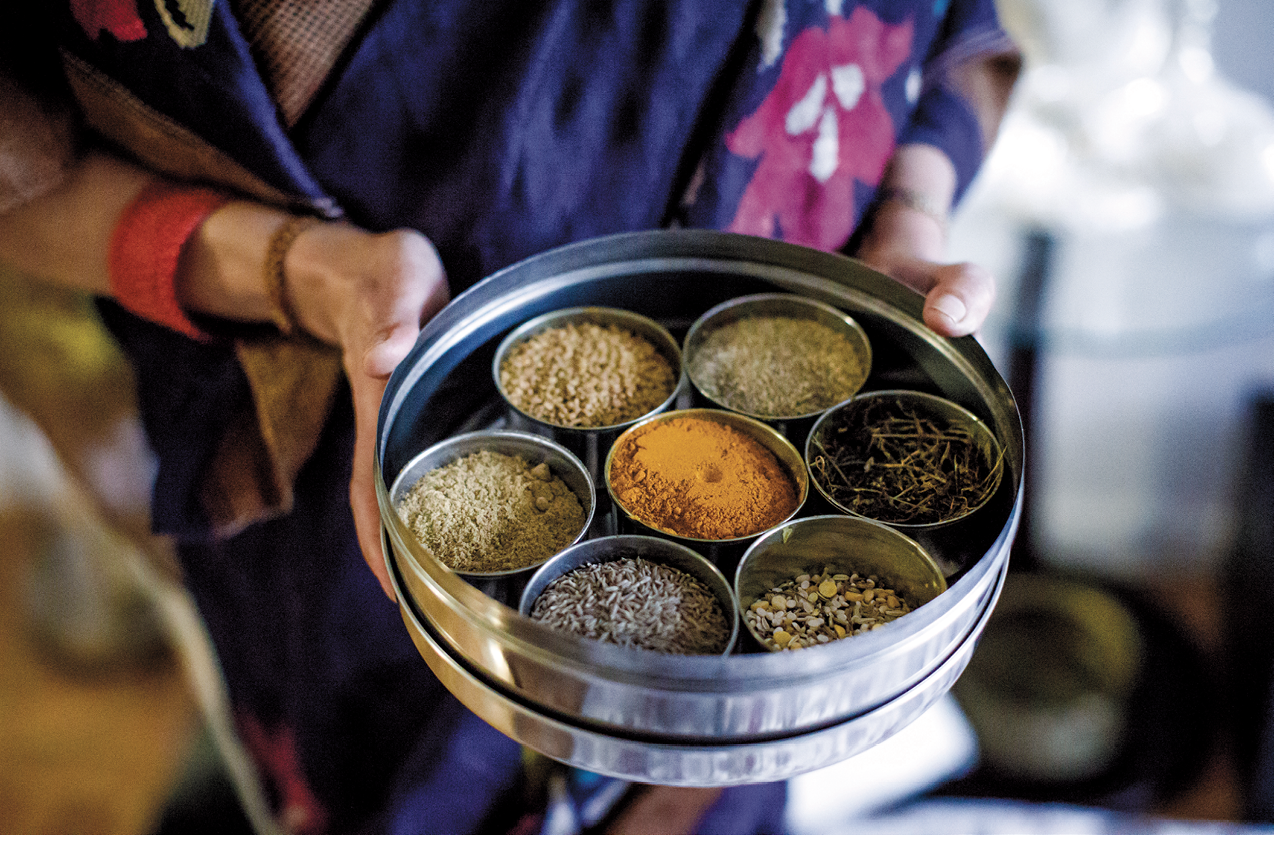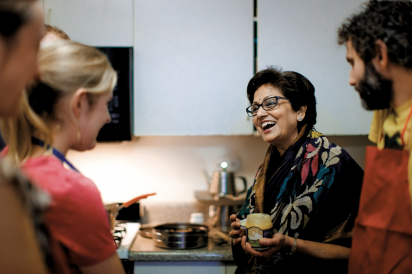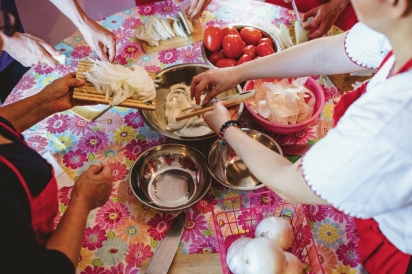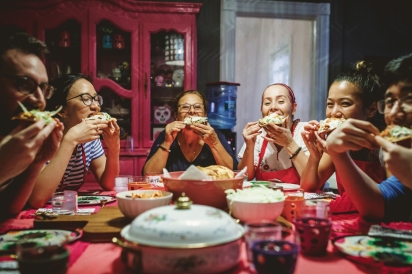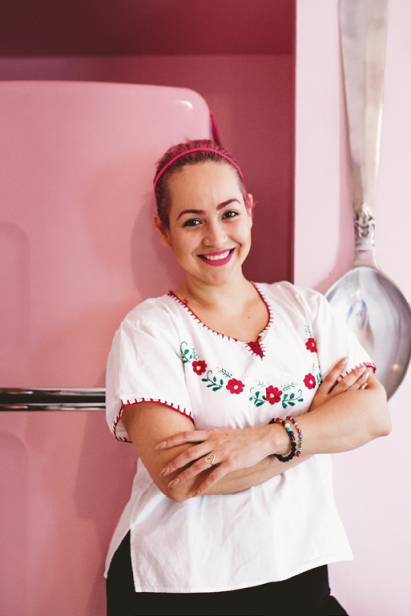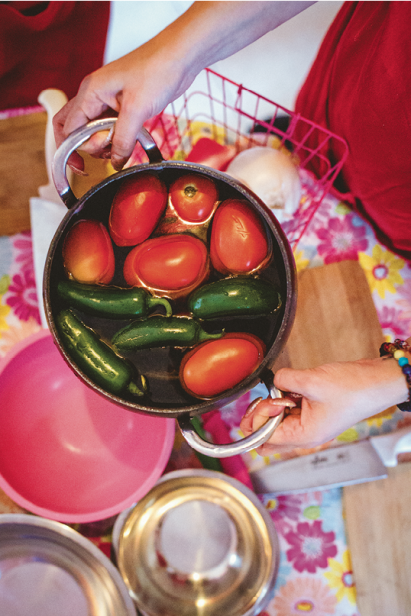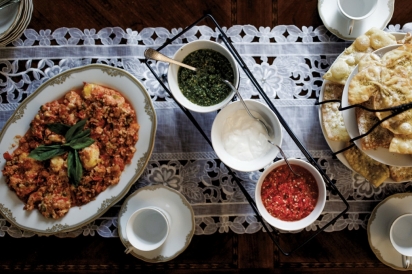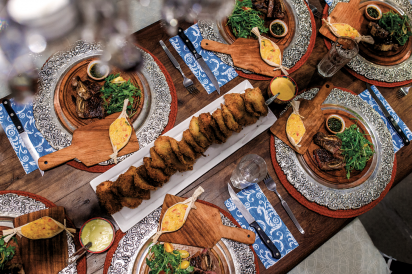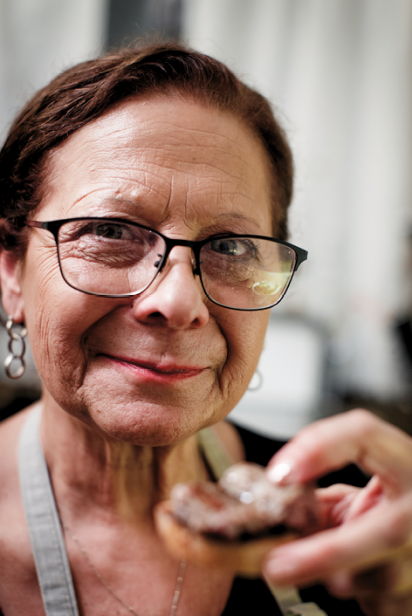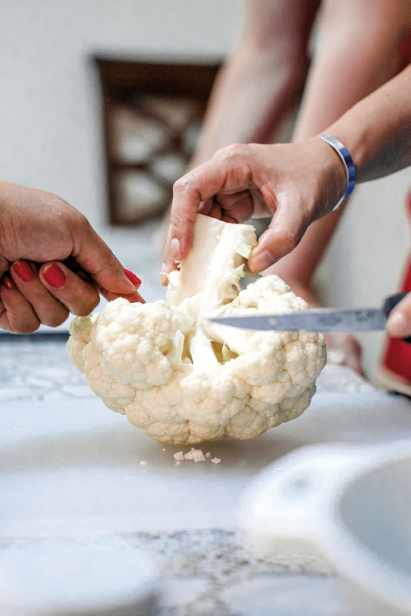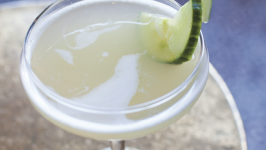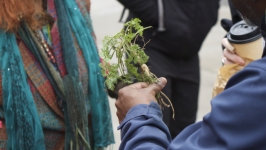Immerse Yourself in Food Culture the League of Kitchens Way
When Lisa Gross was little, she’d ask her Korean grandmother to teach her to cook, but her grandma would shoo her away and tell her to study.
“She wanted me to have opportunities she didn’t,” Lisa says. “Unfortunately, I never learned to cook with her.”
Lisa’s grandmother got her wish—her grandchild earned a master’s in fine arts degree—but when Lisa was ready to learn, her grandmother was gone. “I wished there was a Korean grandmother who could teach me tricks and tips that make food go from good to amazing.”
That inspired Lisa to create the League of Kitchens: immigrants hosting intimate cooking lessons in their homes, viable part-time work for transplanted chefs.
“Food culture focuses on restaurant and celebrity chefs, many of whom are white men—but most cooking is done by women at home,” Lisa says. “League of Kitchens wants to celebrate immigrant women and their contributions.”
In fact, two League of Kitchens instructors from Queens have cooked dinners at the James Beard House, Rachana Rimal and Damira Inatullaeva.
“In today’s political climate, it’s so important to embrace food stories from all over the world,” says Izabela Wojcik, director of programming at the James Beard House. “Each chef brings their own heritage and perspective.”
Here are the stories of four League of Kitchens instructors in Queens.
Rachana Rimal: Nepal to Flushing
In 2006, Rachana fled her country, fearing for her life. When she arrived in New York frightened. She barely spoke English, and had never worked outside her family business. Luckily, she found a catering job and later, the International Rescue Committee connected her with League of Kitchens.
“I cooked since I was 8 years old,” Rachana says. “I always used to sit with my mother in the kitchen.”
“Before, everyone said my food was great. I was confident about my food.” Rachana nods proudly. “Now I do it for a living.”
Angelica “Angie” Vargas: Mexico to Richmond Hill
Angie grew up in Monterrey and came to New York with her mother, who planned to work as a babysitter—but when the employer met 14-year-old Angie, she hired her instead. Angie dropped out of high school to support her family, but eventually completed her studies.
She loved cooking more than anything. Even as a child, she wanted to learn from anyone willing to teach. “The food handmade by my mom was the best,” Angie says. “I loved to help her, as well as my friends’ moms.”
As an adult, her hobby was baking for colleagues at the Center for Traditional Music and Dance. When the director’s wife learned about League of Kitchens, she instantly thought of Angie.
“I always tell my students to cook with love,” Angie says, bustling around her bright kitchen. “It makes your cooking delicious.”
Nawida Saidhosin: Afghanistan to Rego Park
Nawida has lived in four countries—Afghanistan, Pakistan, Russia and the United States—and you’d be hard-pressed to find someone more patriotic.
“I love America! I want to stay till I die,” Nawida exclaims. “Back home, there are rights for the men, but no rights for the women!”
Nawida’s journey to America wasn’t straightforward. She grew up in Kabul, where she cooked with her mother and grandmother. After Nawida married, she moved to Pakistan with her mother-in-law and cooked traditional Afghan dishes while her husband worked in Russia. She finally joined him, but when they separated, she and her son had no options because they lacked papers.
The International Rescue Committee brought her to New York and connected her with the League of Kitchens.
“I enjoy people learning about my food, my country, everything. And we don’t just talk about my food,” Nawida said. “We talk about our lives, we talk about our homes. We learn a lot.”
Mirta Rinaldi: Argentina to Forest Hills
Mirta has vision. She knows exactly how she wants her food to taste and look. She grew up in Mendoza, a “simple, family-oriented place.” Much of Mirta’s home country’s culture is centered around communal culinary experiences, such as asado (barbecue) and mate, a traditional drink.
“Everyone made food for family affairs and celebrations.” Mirta says. “I always cooked—from when I was little.”
She explains that Argentinian food is eclectic, because like the United States it’s also a country of immigrants. When Mirta fell in love with a man from her hometown who had moved to Queens, she emigrated to America.
Mirta tells her students to write down family recipes. “Once that knowledge is gone, you can never get it back.”


